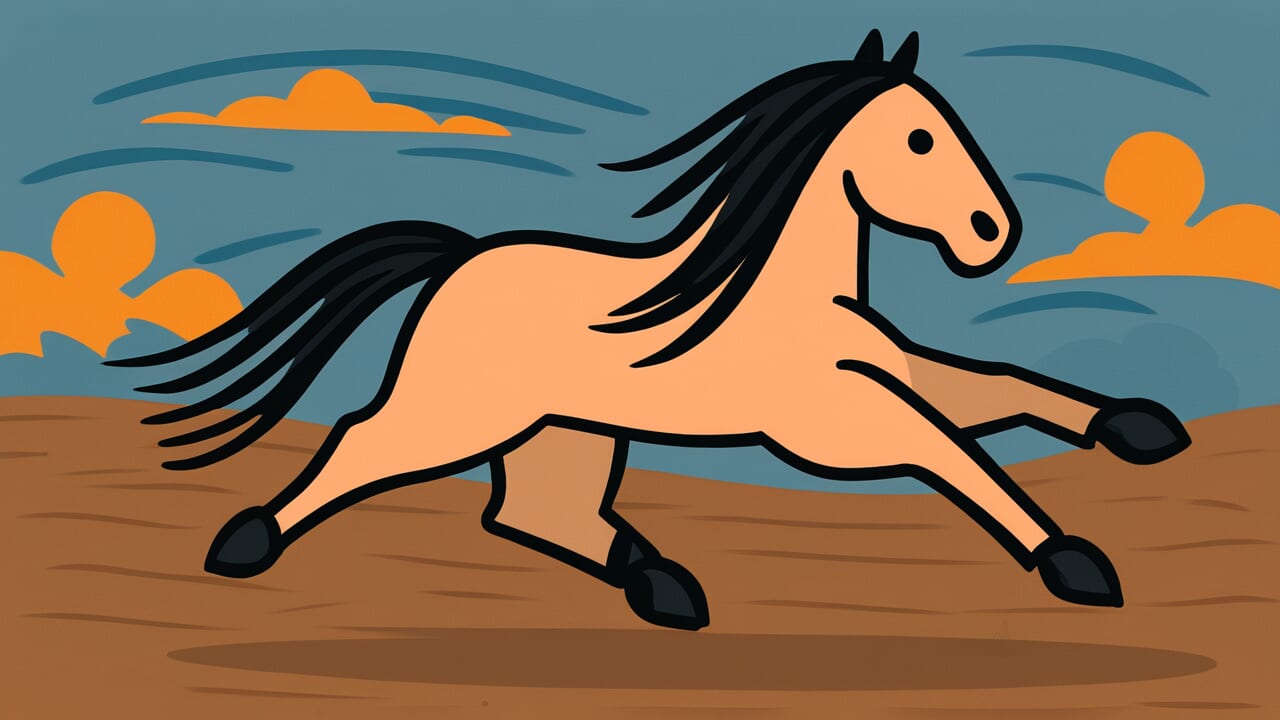How to Read “When one horse runs, not a single hair stays still”
Ichiba no hashiru, ichimō no ugokazaru wa nashi
Meaning of “When one horse runs, not a single hair stays still”
This proverb means that when one person takes action, it always affects the people around them.
Just as every hair on a horse’s body moves when the horse runs, human actions never stay isolated. They always spread to others.
For example, when you start something new, it affects your family, friends, and coworkers in some way.
Good actions create positive effects around you. Bad actions create negative ones.
You might think “this is just my own business,” but someone is always watching. Someone always notices and reacts in some way.
In today’s world, this message matters even more. Through social media, individuals have greater power to influence others than ever before.
Even small actions can spread unexpectedly far. We must stay aware that we are always connected to those around us.
Origin and Etymology
The exact source of this proverb has several theories. Most scholars believe it comes from ancient Chinese philosophy, particularly Buddhism and Taoism.
“Ichiba” means one horse. “Ichimō” means a single hair growing on that horse’s body.
When a horse starts running, its whole body naturally moves. But if you observe carefully, you’ll notice something more.
Every single hair covering its body moves too. They flutter in the wind and sway with the muscle movements.
No matter how small a hair is, it stays still when the horse is still. When the horse runs, every hair must move.
This observation contains a philosophical insight about the relationship between the whole and its parts.
Eastern philosophy holds a worldview that all things are interconnected. No action exists in isolation. Every action spreads to its surroundings.
The negative expression “not a single hair stays still” is also significant. Instead of saying positively “all hairs move,” it uses double negation.
This emphasizes that the effect reaches everything without exception. This rhetorical technique is common in classical Japanese proverbs.
Usage Examples
- When he took the lead in picking up trash, it was like “when one horse runs, not a single hair stays still”—the whole class joined the cleanup activity
- The way a leader’s attitude changes an entire organization is exactly “when one horse runs, not a single hair stays still”
Universal Wisdom
The truth this proverb speaks is that humans are not isolated beings. No matter how much we think “this is just me,” we are actually connected to others by invisible threads.
Since ancient times, humans have been social creatures who live in groups. When one hunter chased prey, other members responded and moved too.
When one farmer planted seeds, the whole village moved according to the seasonal rhythm. Through these interdependent relationships, humanity has survived.
That’s why our ancestors deeply understood the nature of “influence.” Only powerful people don’t hold influence.
People in any position always create ripples with their actions. A child’s smile brightens the family.
One person’s brave statement changes the flow of a meeting. Someone’s kindness creates a chain reaction.
This proverb has been passed down for so long because it captures a fundamental truth about human society.
We are beings who give influence and receive influence at the same time. This interaction is the essence of human relationships and the driving force that moves society.
This truth never changes, no matter how much time passes.
When AI Hears This
The observation that not a single hair stays still when a horse runs actually strikes at the heart of chaos theory.
In chaos theory, tiny differences in initial conditions expand exponentially over time. Meteorologist Lorenz discovered this phenomenon in 1963.
He showed that rounding errors in decimal places could produce completely different weather forecasts. A difference of 0.001 between 0.506 and 0.507 could mean the difference between sunshine and storms weeks later.
What makes this proverb sharp is that it captures the relationship between whole and parts bidirectionally, not just one way.
Not only does the horse’s running cause the hair to move, but each hair’s movement is also integrated into the horse’s overall motion system.
Modern complexity science calls this a “coupled nonlinear system.” Each element influences the others and determines the behavior of the whole.
What’s interesting is that this proverb expresses itself as a universal proposition: “not a single hair stays still.”
It doesn’t say probabilistically “most move.” It declares without exception that “all move.”
This may be evidence that Chinese people 2,000 years ago intuitively understood the essence of deterministic chaos—the contradictory property of being completely lawful yet unpredictable.
The attitude of trying to describe the system including changes at the unobservable level of a single hair is exactly the measurement limit problem that modern physics faces.
Lessons for Today
This proverb teaches you about both your value and your responsibility. First, have hope.
Even if you think “I’m such a small existence,” you are definitely influencing someone. Your smile, your words, your actions—they all reach the people around you.
At the same time, this influence comes with responsibility. Casual social media posts, your attitude at work, your behavior at home—all of these create ripples.
The idea that “nobody’s watching” or “this is just my own thing” is an illusion.
That’s why living consciously matters. If you choose kindness, that kindness spreads to others.
If you are honest, that honesty expands the circle of trust. On the flip side, careless attitudes and irresponsible words spread the same way.
In modern society, each person’s influence has grown larger than ever before. Your actions might change someone’s life in ways you never imagined.
Recognize that power and choose to be on the side that spreads good influence. That is the message this proverb gives to those of us living today.



Comments